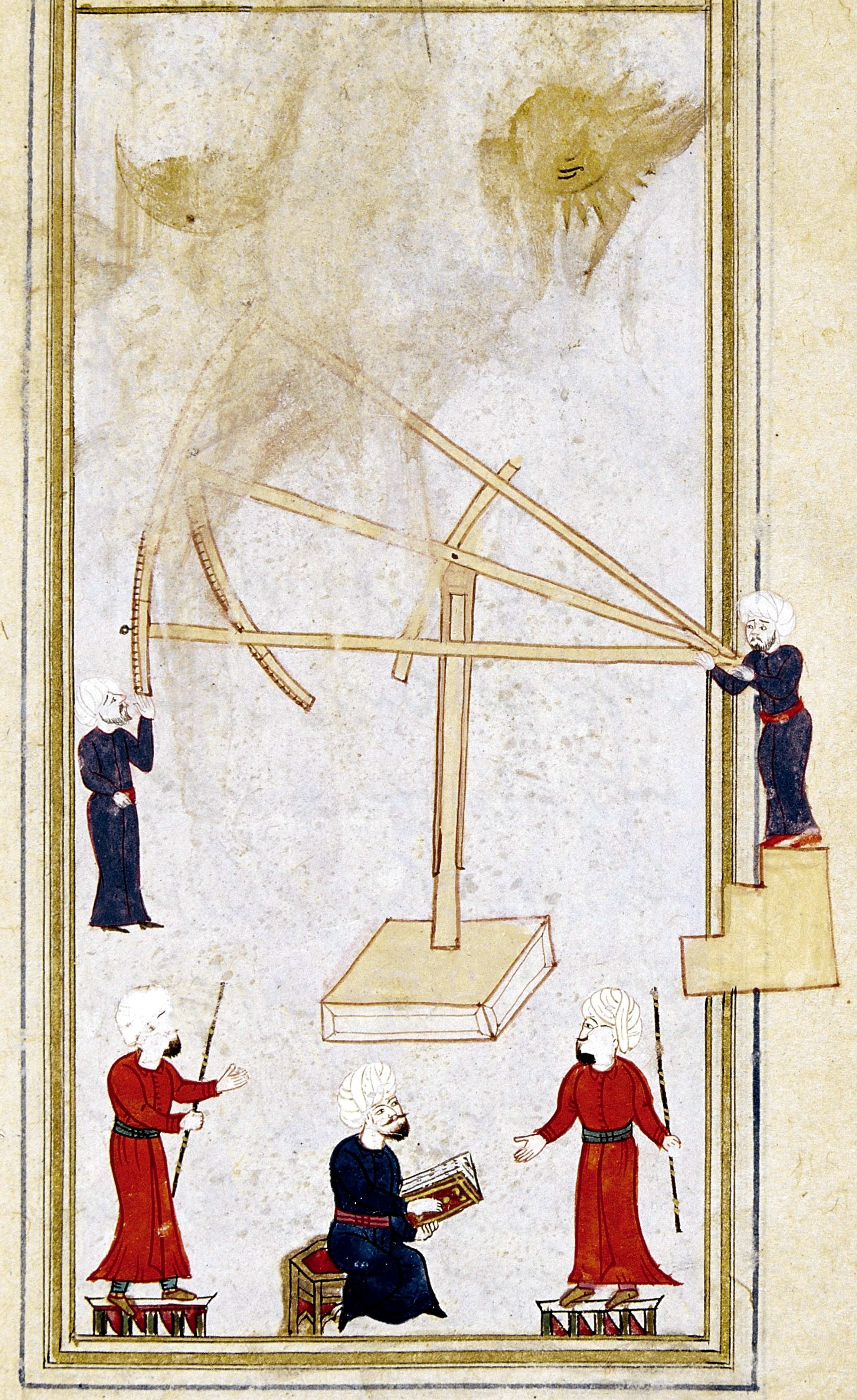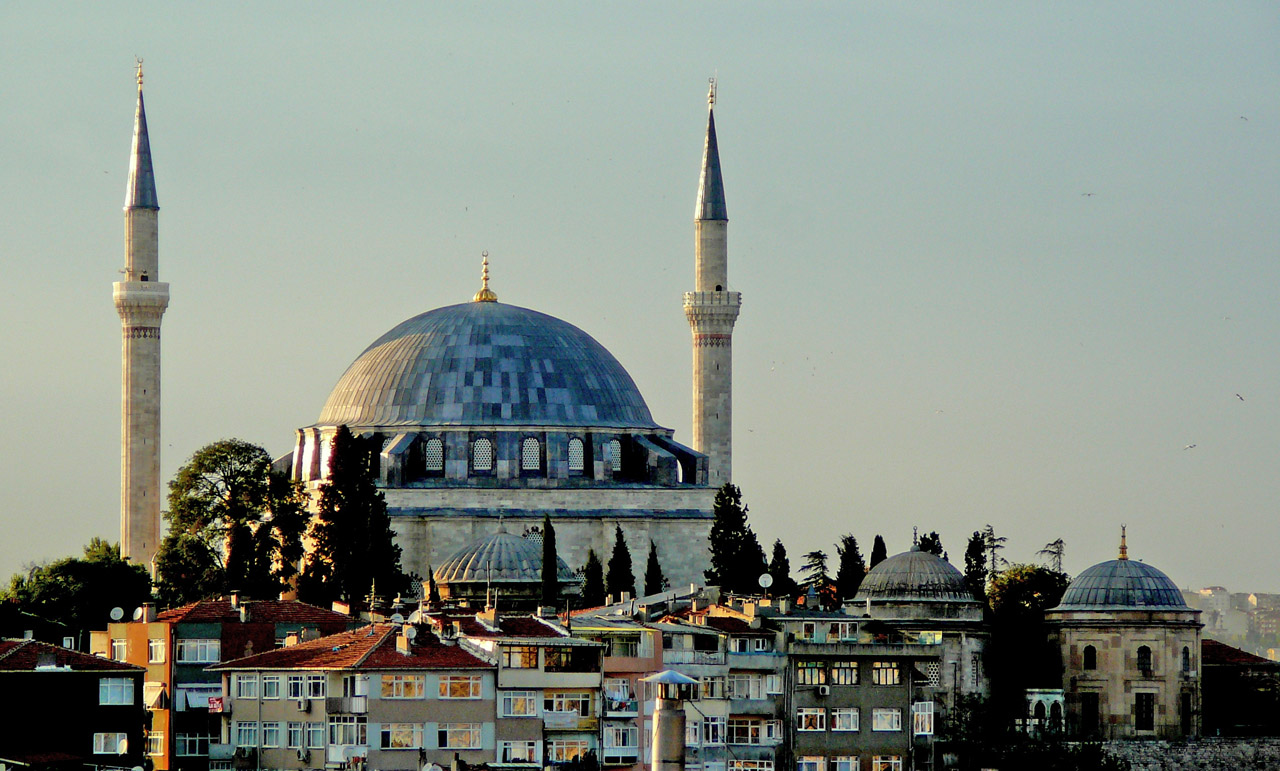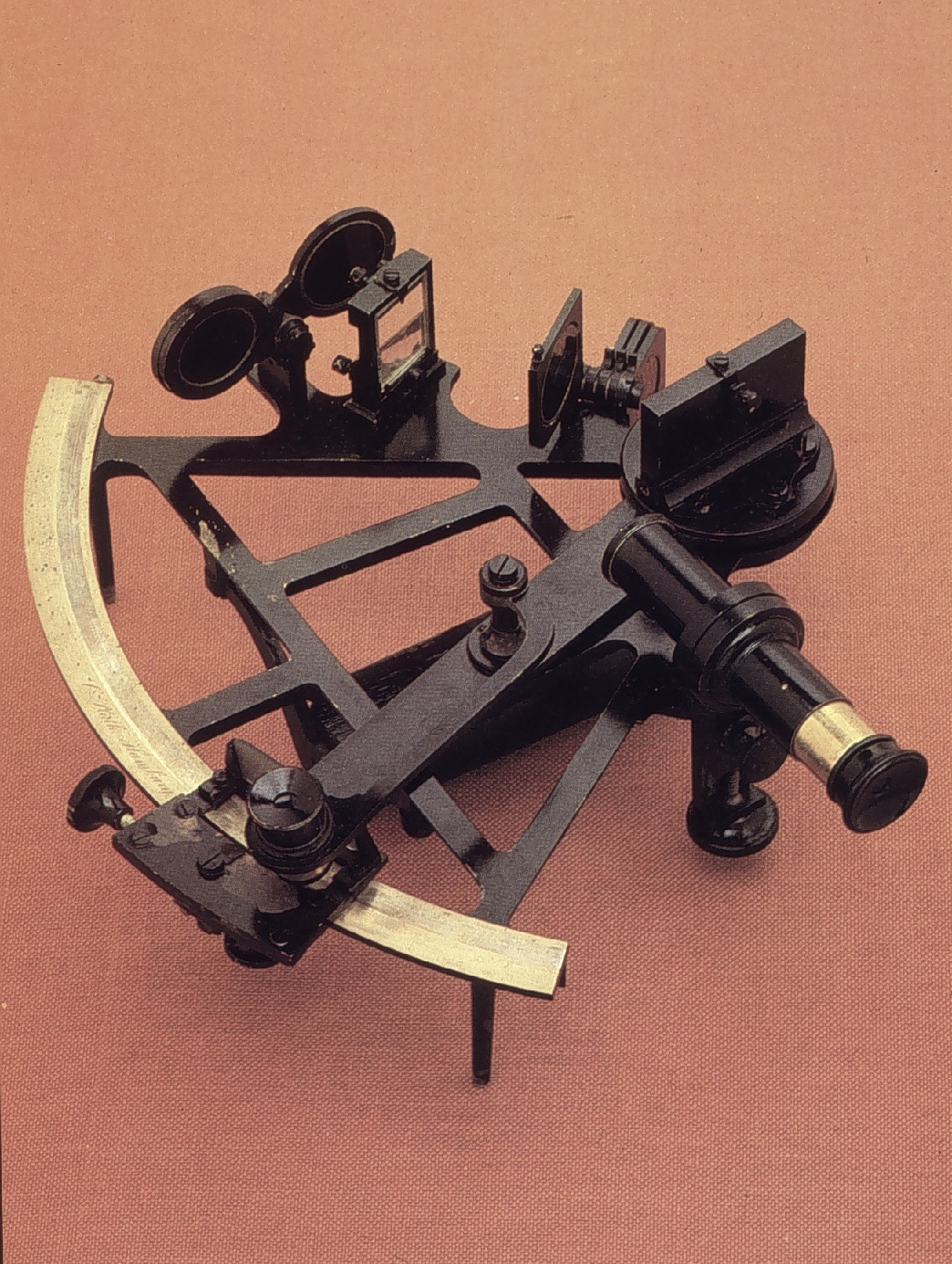|
Müneccimbaşı
Müneccimbaşı (sometimes also spelled as ''Müneccimbashi,'' ''Müneccimbasi,'' ''Munejjimbashi,'' or ''Munejjim-bashi'') was the title given to the chief court astrologer in the Ottoman Empire. The title was held in succession from the 15th century until the demise of the Empire. Since the late-17th century "müneccimbaşı" Ahmet Dede was also famous as a historian and man of letters and since he is cited along with his title in and regarding his works, the term may be used in some sources in reference solely to Müneccimbaşı Ahmed Dede. See also * Istanbul observatory of Taqi al-Din * Muwaqqit * Officeholders ** Müneccimbaşı Ahmed Dede ** Mustafa ibn Ali al-Muwaqqit ** Taqi ad-Din Muhammad ibn Ma'ruf Taqi ad-Din Muhammad ibn Ma'ruf ash-Shami al-Asadi ( ar, تقي الدين محمد بن معروف الشامي; ota, تقي الدين محمد بن معروف الشامي السعدي; tr, Takiyüddin 1526–1585) was an Ottoman poly ... {{DEFAULTSORT:M ... [...More Info...] [...Related Items...] OR: [Wikipedia] [Google] [Baidu] |
Mustafa Ibn Ali Al-Muwaqqit
Mustafa ibn Ali al-Muwaqqit (died 1571, the epithet al-Muwaqqit means "the timekeeper"), also known as Müneccimbaşı Mustafa Çelebi and Koca Saatçi, was an Ottoman astronomer and author of geography from the sixteenth century. Because of his works on the science of timekeeping and practical astronomy, he is considered "the founder of the Ottoman tradition" of those fields. He was one of the pioneers of astronomy literature in Ottoman Turkish—instead of Arabic which was more common in the Islamic world—following Muhammad al-Qunawi. Since his youth he served as the ''muwaqqit'' (religious timekeeper) attached to the Mosque of Selim I in Istanbul, in which capacity he produced most of his writing. In 1560 or later he was appointed to the office of ''müneccimbaşı'', the highest post for astronomers of the Empire. Early life Muslih al-Din Mustafa ibn Ali al-Qustantini al-Rumi was born in Istanbul, the capital of the Ottoman Empire, in the early sixteenth century. Among ... [...More Info...] [...Related Items...] OR: [Wikipedia] [Google] [Baidu] |
Müneccimbaşı Ahmed Dede
Ahmed Lütfullah (early 17th century – 27 February 1702), better known by his court title of Münejjim Bashi ( tr, Müneccimbaşı; "Chief Astrologer"), was an Ottoman courtier, scholar, Sufi poet and historian. His chief work is the ''Jamiʿ al-Duwal'', a world history particularly valuable for the history of the medieval Muslim dynasties of the regions around the southwestern shore of the Caspian Sea ( Adharbayjan, Shirvan, Arran, Derbent). In Turkish literature, he is referred to also as Ahmed Lütfullah. Biography His father Lütfullah was a native of Ereğli, Konya, but Ahmed was born in Salonica sometime in the first half of the 17th century (in 1631 according to the ''Encyclopædia Britannica'').. He was educated at the Mevlevi dervish lodge in the quarter of Kasımpaşa, spending 15 years there under the supervision of Sheikh Halil Dede. After studies on astronomy and astrology, he advanced to the position of chief court astrologer ('' müneccimbaşi'') in 1667/8. He ... [...More Info...] [...Related Items...] OR: [Wikipedia] [Google] [Baidu] |
Muwaqqit
In the history of Islam, a ''muwaqqit'' ( ar, مُوَقَّت, more rarely ''mīqātī'') was an astronomer tasked with the timekeeping and the regulation of prayer times in an Islamic institution like a mosque or a madrasa. Unlike the muezzin (reciter of the call to prayer) who was usually selected for his piety and voice, a muwaqqit was selected for his knowledge and skill in astronomy. Not all mosques had a muwaqqit. The office was first recorded in the late 13th century in the Mosque of Amr ibn al-As in the Mamluk Sultanate of Cairo and then spread to various parts of the Muslim world. Even then, many major mosques only relied on muezzins to determine prayer times using traditional methods, such as observing shadow lengths and twilight phenomena. The lack of historical sources and research makes it difficult to ascertain the specific functions and roles of the muwaqqit. There is uncertainty among historians of science whether the muwaqqit was a specialised office whose ... [...More Info...] [...Related Items...] OR: [Wikipedia] [Google] [Baidu] |
Taqi Ad-Din Muhammad Ibn Ma'ruf
Taqi ad-Din Muhammad ibn Ma'ruf ash-Shami al-Asadi ( ar, تقي الدين محمد بن معروف الشامي; ota, تقي الدين محمد بن معروف الشامي السعدي; tr, Takiyüddin 1526–1585) was an Ottoman polymath active in Cairo and Istanbul. He was the author of more than ninety books on a wide variety of subjects, including astronomy, clocks, engineering, mathematics, mechanics, optics and natural philosophy. In 1574 the Ottoman Sultan Murad III invited Taqi ad-Din to build an observatory in the Ottoman capital, Istanbul. Using his exceptional knowledge in the mechanical arts, Taqi ad-Din constructed instruments like huge armillary and mechanical clocks that he used in his observations of the Great Comet of 1577. He also used European celestial and terrestrial globes that were delivered to Istanbul in gift exchanges. The major work that resulted from his work in the observatory is titled "The tree of ultimate knowledge n the end of time o ... [...More Info...] [...Related Items...] OR: [Wikipedia] [Google] [Baidu] |
Sextant TakiyüddinRasid TopkapiPalaceMuseum
A sextant is a doubly reflecting navigation instrument that measures the angular distance between two visible objects. The primary use of a sextant is to measure the angle between an astronomical object and the horizon for the purposes of celestial navigation. The estimation of this angle, the altitude, is known as ''sighting'' or ''shooting'' the object, or ''taking a sight''. The angle, and the time when it was measured, can be used to calculate a position line on a nautical or aeronautical chart—for example, sighting the Sun at noon or Polaris at night (in the Northern Hemisphere) to estimate latitude (with sight reduction). Sighting the height of a landmark can give a measure of ''distance off'' and, held horizontally, a sextant can measure angles between objects for a position on a chart. A sextant can also be used to measure the lunar distance between the moon and another celestial object (such as a star or planet) in order to determine Greenwich Mean Time and hence ... [...More Info...] [...Related Items...] OR: [Wikipedia] [Google] [Baidu] |
Astrologer
Astrology is a range of divinatory practices, recognized as pseudoscientific since the 18th century, that claim to discern information about human affairs and terrestrial events by studying the apparent positions of celestial objects. Different cultures have employed forms of astrology since at least the 2nd millennium BCE, these practices having originated in calendrical systems used to predict seasonal shifts and to interpret celestial cycles as signs of divine communications. Most, if not all, cultures have attached importance to what they observed in the sky, and some—such as the Hindus, Chinese, and the Maya—developed elaborate systems for predicting terrestrial events from celestial observations. Western astrology, one of the oldest astrological systems still in use, can trace its roots to 19th–17th century BCE Mesopotamia, from where it spread to Ancient Greece, Rome, the Islamic world, and eventually Central and Western Europe. Contemporary Western astr ... [...More Info...] [...Related Items...] OR: [Wikipedia] [Google] [Baidu] |
Ottoman Empire
The Ottoman Empire, * ; is an archaic version. The definite article forms and were synonymous * and el, Оθωμανική Αυτοκρατορία, Othōmanikē Avtokratoria, label=none * info page on book at Martin Luther University) // CITED: p. 36 (PDF p. 38/338) also known as the Turkish Empire, was an empire that controlled much of Southeast Europe, Western Asia, and North Africa, Northern Africa between the 14th and early 20th centuries. It was founded at the end of the 13th century in northwestern Anatolia in the town of Söğüt (modern-day Bilecik Province) by the Turkoman (ethnonym), Turkoman tribal leader Osman I. After 1354, the Ottomans crossed into Europe and, with the Ottoman wars in Europe, conquest of the Balkans, the Ottoman Anatolian beyliks, beylik was transformed into a transcontinental empire. The Ottomans ended the Byzantine Empire with the Fall of Constantinople, conquest of Constantinople in 1453 by Mehmed the Conqueror. Under the reign of Sule ... [...More Info...] [...Related Items...] OR: [Wikipedia] [Google] [Baidu] |
Civil Servants From The Ottoman Empire
{{disambiguation ...
Civil may refer to: *Civic virtue, or civility *Civil action, or lawsuit * Civil affairs *Civil and political rights *Civil disobedience *Civil engineering *Civil (journalism), a platform for independent journalism *Civilian, someone not a member of armed forces *Civil law (other), multiple meanings * Civil liberties *Civil religion *Civil service *Civil society *Civil war *Civil (surname) Civil is a surname. Notable people with the surname include: *Alan Civil (1929–1989), British horn player *François Civil (born 1989), French actor * Gabrielle Civil, American performance artist * Karen Civil (born 1984), American social media a ... [...More Info...] [...Related Items...] OR: [Wikipedia] [Google] [Baidu] |
Ottoman Culture
Ottoman Empire, Ottomans culture evolved over several centuries as the ruling administration of the Turkish peoples, Turks absorbed, adapted and modified the various native cultures of conquered lands and their peoples. There was influence from the customs and languages of Islamic culture, Islamic societies, while Persian people, Persian culture had a significant contribution through the Great Seljuq Empire, Seljuq Turks, the Ottomans' predecessors. Despite newer added amalgamations, the Ottoman dynasty, like their predecessors in the Sultanate of Rum and the Seljuk Empire were influenced by Persian culture, language, habits and customs. Throughout its history, the Ottoman Empire had substantial subject populations of Rum Millet, Orthodox subjects, Armenians in the Ottoman Empire, Armenians, History of the Jews in Turkey#Ottoman era, Jews and Assyrians and Syriacs in Turkey, Assyrians, who were allowed a certain amount of autonomy under the ''Millet (Ottoman Empire), millet'' system ... [...More Info...] [...Related Items...] OR: [Wikipedia] [Google] [Baidu] |


_(muvakkithane).jpg)



